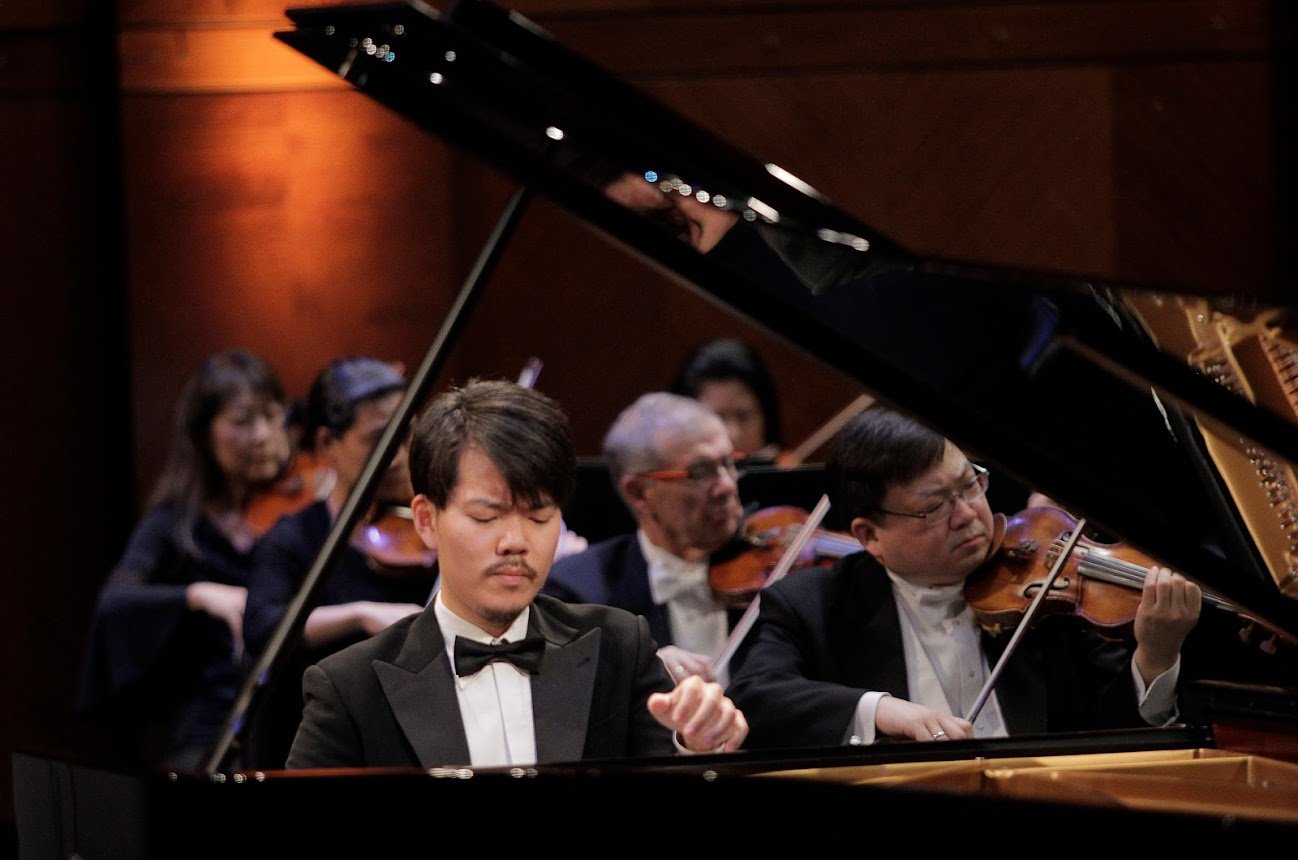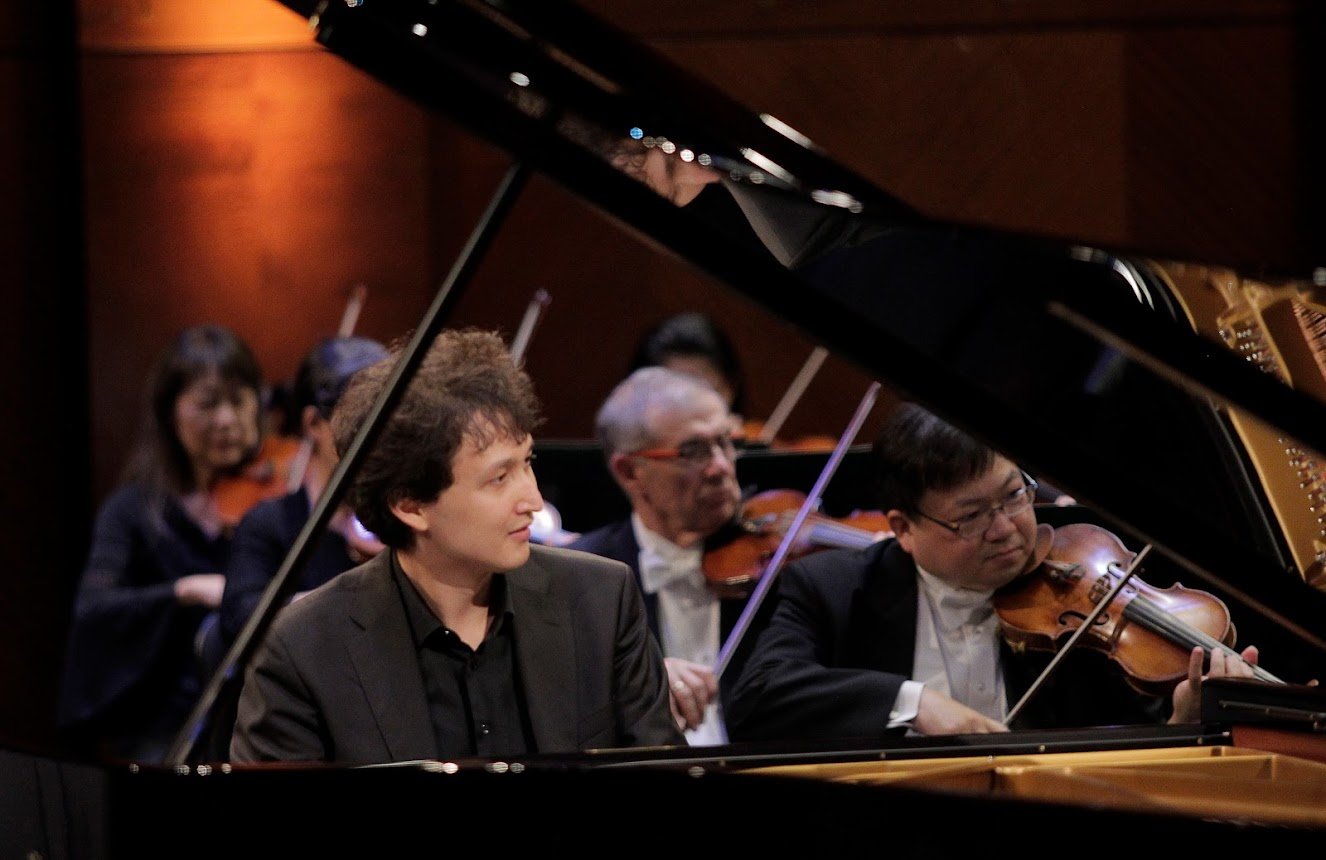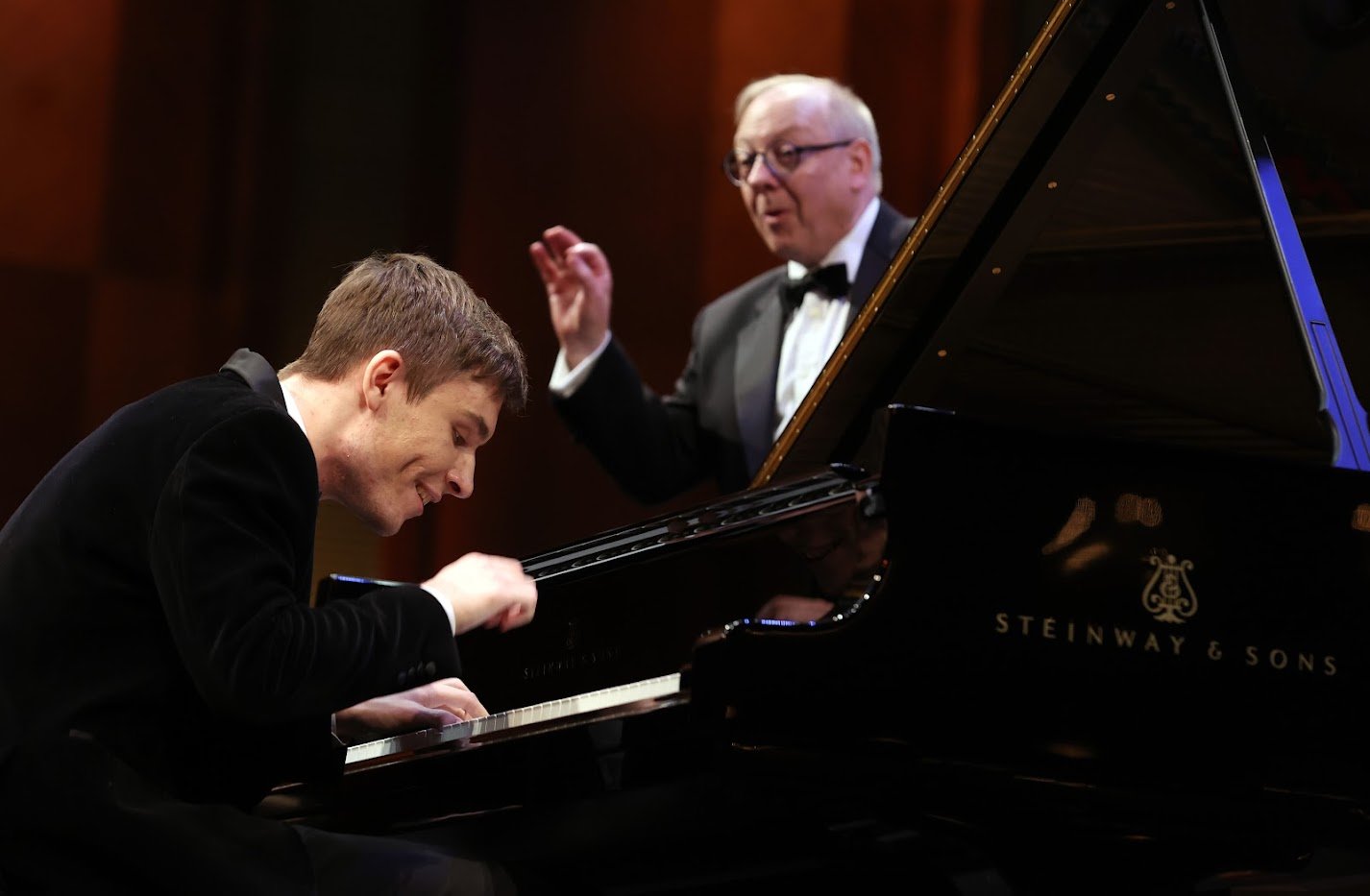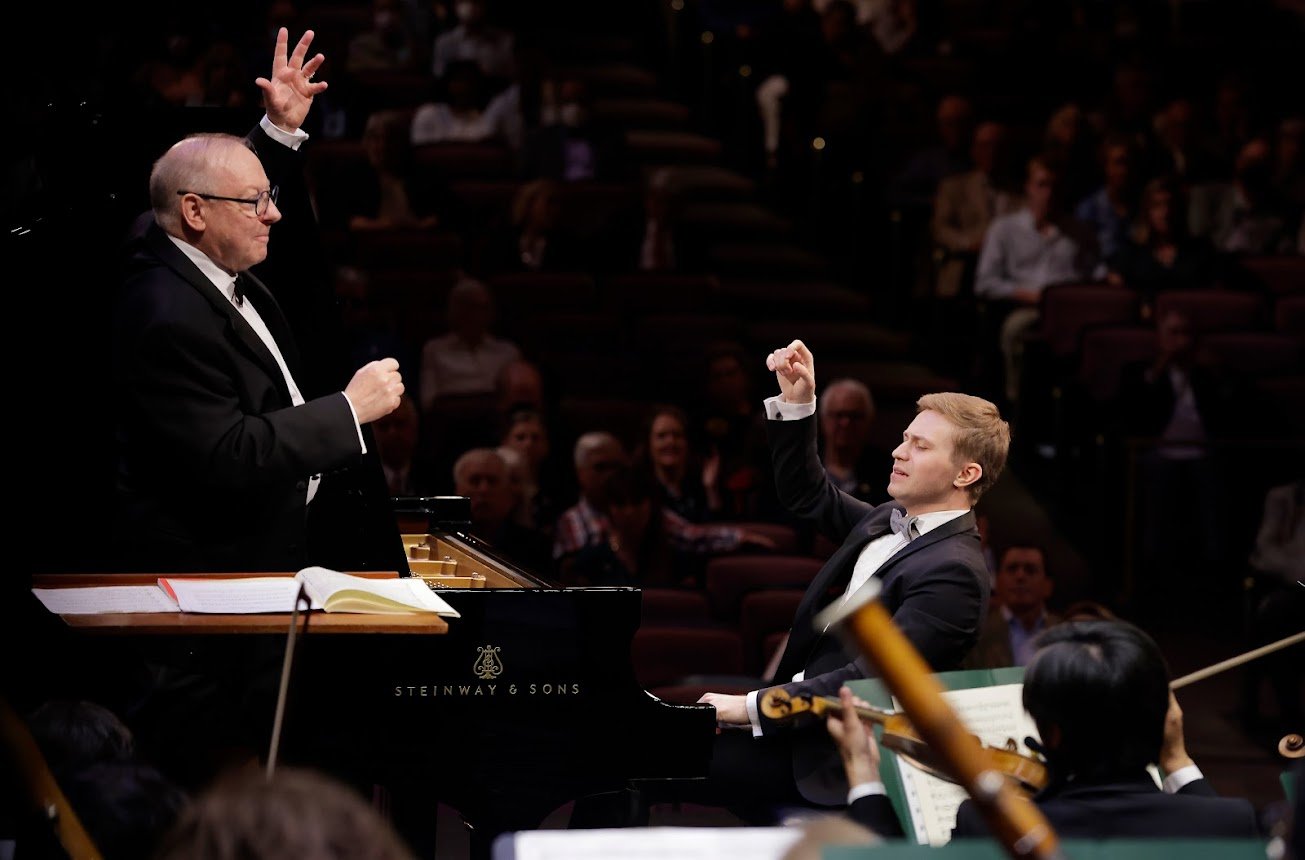Cliburn Competition: Semifinal Concert 3 (Mozart), June 9, 2022
—Wayne Lee Gay
The most notable innovation in this year's Cliburn Competition is the addition of a concerto requirement at the semifinal level. This year, all twelve semifinalists will perform a concerto of Mozart with the Fort Worth Symphony, conducted by renowned Mozart interpreter Nicholas McGegan.
One predictable downside of the requirement is an abundance of performances of one particular concerto, Mozart's No. 20 in D minor. Six of the twelve competitors chose No. 20: the audience and the jury will hear the work twice in each of the three evenings of the semifinal concerto round, with two other concertos filling out each evening.
Thirty-year-old Honggi Kim opened the concerto performances Thursday with, yes, No. 20. In keeping with good performance practice for classical-era music, conductor McGegan placed a reduced string section onstage; however, he demanded a substantial, energetic volume in the long orchestral introduction of the work. Kim unfortunately responded with a weak tone throughout his performance. He has substantial concerto experience in his résumé, but failed to demonstrate the unique insight needed in Mozart's concertos. Ideally, these works demand an expressiveness of a different, milder sort than the grand romantic and modern concertos.
Mozart was skimpy in placing expression marks in his concertos, and Kim showed no imagination or instinct for dynamic contrast beyond the barest minimum. Only in the solo cadenzas did he show a wider dynamic. The requisite coordination between conductor and soloist was in place, but Kim still seemed remote and disconnected from the orchestra throughout the three-movement work.
French-Japanese competiror Marcel Tadokoro, 28, fared much better with Mozart's Piano Concerto No. 27 in B-flat. (The shift of tonality from dark D minor to brighter B-flat major didn't hurt his case.) Probably the last piano concerto composed by Mozart (though there is some disagreement about that), No. 27 presents Mozart at the same high point that produced his immortal comic operas. Tadokoro played with an appropriately wide dynamic range, always engaging but never overbaked He added bits of ornamentation throughout, and created a fine sense of ensemble coordination with McGegan and the orchestra, which accompanied with clarity and energy.
Belarussian Uladzislau Khandohi, 20, came on after intermission with Mozart's Piano Concerto No. 9, a work in which Mozart departed substantially from standard concerto procedure of his era—the most obvious difference being the early introduction of the piano solo, as well as the insertion of a slow Menuetto section in the midst of the final Presto movement. Khandohi clearly reveled in the dramatic tension this structure creates; the interchange between soloist and orchestra early on in the first movement set the tone for a fine collaboration throughout.
Ukrainian Dmytro Choni, 28, took on the evening's second performance of Concerto No. 20. After the lackluster presentation of the piece earlier in the evening by Kim, Choni demonstrated the potential for contrast within measured boundaries here. No. 20 was a favorite of the romantic era; this performance, rich with reasonable contrast, revealed the inherent drama the romantic era loved, with the journey through darkness landing fortuitously in the final movement on the A major theme, one of Mozart's happiest melodic inventions.
This evening's semifinal concert showcased one of the finest traditions of the Cliburn competition through the decades: the Cliburn audience greets each competitor as if he or she is already an established superstar, encouraging the competitor to perform like one. That's the job of the live Cliburn audience, and they do it well.



